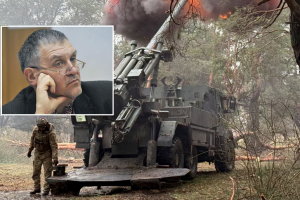The number of people ready for any compromise for peace has decreased in the Donbass
The number of citizens willing to accept any compromise for the sake of peace in the Donbas has decreased for over a year, but more significantly in the Donetsk region.
This is evidenced by the results of the regional opinion poll conducted by the Ilko Kucheriv Democratic Initiatives Foundation.
"In the Donetsk region, since the end of 2018 (previous opinion poll was conducted in November 2018 - ed.), even some radicalization took place, and critical assessments of these compromises were voiced much more often than before, " commented the political analyst of the Foundation Maria Zolkina.
In particular, according to the study, 14% of residents are ready to make any compromises for the sake of peace in the Donetsk region, compared to 45% more than a year ago. In the Luhansk region, this number decreased to 34% against 47% in 2018.
50% of residents of the Donetsk region and 49% of Luhansk have declared their readiness for partial compromises. Over a year ago, these numbers were 35% and 34%, respectively.
The opinion that peace in the Donbas can be restored only from the standpoint of strength when one of the parties wins is now shared by 27% of the residents of Donetsk region (14% more than a year ago) and 7% of Luhansk region, ie almost the same number (6%), as in 2018.
In addition, most citizens in the Ukrainian-controlled Donbas territory would find unacceptable such compromises for the sake of peace, such as elections on the insurgents' terms, complete amnesty, and the formation of law enforcement agencies from the representatives of non-controlled territories.
In particular, holding elections in controlled territories on the terms proposed by insurgents is unacceptable for 68% of the residents of the Donetsk region and 35% of the residents of the Luhansk region.
Public opinion in Donbas. A year after presidential elections
At the same time, 15% of our compatriots in the Donetsk region and 36% in Lugansk consider them acceptable.
55% of Donetsk residents and 50% of Luhansk oblasts disagree with the announcement of full amnesty for all participants of hostilities against Ukrainian troops. In Donetsk region, 22% of the inhabitants of the controlled territories would agree to such a step, and in Lugansk - 16%.
Formation of local police, courts, and prosecutors' offices in non-controlled territories exclusively by local representatives are not supported by 60% of those polled in the Donetsk region and 30% in Luhansk.
18% of the residents of the Donetsk region would agree with this, and 22% found it difficult to answer this question, in Lugansk - 34%, and 36% of residents have not decided.
Commenting this survey, Maria Zolkina noted that, as it demonstrated by focus groups, these ideas are unacceptable not because these options undermine Ukraine's political system in general, but due to the fact that the population in frontline areas mostly starts to get used to the status quo where they live.
"That is, the reluctance to accept broad preferences for the occupied territories is explained first of all by the fact that the population begins to focus on normalizing the status quo, to coexist with the occupied territories in the current format, when there is a line of delimitation when the occupied areas are not controlled by the Ukrainian government. Instead, the government should focus on normalizing the lives of people in the frontline communities on the delimitation line," she said.
Regional public opinion poll was conducted by llko Kucheriv Democratic Initiatives Foundation together with the Center for Political Sociology (using network of the Ukrainian Sociology Service) in the government-controlled areas of Donetsk and Luhansk regions between February 18 - March 2, 2020. In every region, 500 respondents were polled based on a sample that represents the adult population (except the occupied territories). The sample is representative of such indicators as sex, age, education, and place of residence. The theoretical sample error does not exceed 3.5%. Survey was conducted due to financial support from the UK Embassy in Ukraine.









